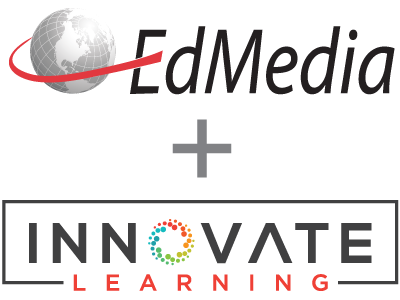
Development of a Collaborative Learning System based on NHK's Educational TV Program
PROCEEDINGS
Haruo Kurokami, Kanazawa University, Japan ; Tatsuya Horita, Toyama University, Japan ; Yuhei Yamauchi, Ibaraki University, Japan
EdMedia + Innovate Learning, in Seattle, WA USA ISBN 978-1-880094-35-8 Publisher: Association for the Advancement of Computing in Education (AACE), Waynesville, NC
Abstract
There have been a number of attempts to make collaborative learning situations for elementary school children using the Internet. While there has been some success, effective collaborative learning depends on the sharing of a common problem or issue (Kurokami et al., 1996, 1997). Because of the vast quantity and variety of information available for each learner, the Internet alone cannot provide the focus necessary for effective collaborative learning. NHK, the largest broadcasting company in Japan, televises a variety of educational programs including, "Tatta Hitotsu-no Chikyu; The Only One Earth." This series, targeting fifth and sixth graders, focuses on environmental themes such as the destruction of the environment, environmental recovery, recycling systems, and what children can do in their daily lives to help the environment. This nationally broadcast program provides a common learning source for distant learners. Children from geographically distant locations, can watch the same program, form ideas and opinions from their local perspectives and exchange information with each other.
Citation
Kurokami, H., Horita, T. & Yamauchi, Y. (1999). Development of a Collaborative Learning System based on NHK's Educational TV Program. In B. Collis & R. Oliver (Eds.), Proceedings of ED-MEDIA 1999--World Conference on Educational Multimedia, Hypermedia & Telecommunications (pp. 1814-1815). Seattle, WA USA: Association for the Advancement of Computing in Education (AACE). Retrieved August 8, 2024 from https://www.learntechlib.org/primary/p/7211/.
© 1999 Association for the Advancement of Computing in Education (AACE)
Keywords
References
View References & Citations Map- Kurokami, H., Iguchi, I., Yamauchi, Y., Horita, T., & Kuroda, T. (1997) Relationship between Network and TV programs for schoolchildren. Educational TV Programs and Educational Software in Multimedia Era, A Report for NHK
- Kurokami, H., Horita, T., Yamauchi, Y., & Kuroda, T. (1998) Development of network communicating system to activate TV centered learning, Educational TV Programs and Educational Software in Multimedia Era, A Report for NHK
These references have been extracted automatically and may have some errors. Signed in users can suggest corrections to these mistakes.
Suggest Corrections to ReferencesCited By
View References & Citations Map-
Using Digital Terrestrial Broadcasting in Schools
Haruo Kurokami, Kansai University, Japan
EdMedia + Innovate Learning 2002 (2002) pp. 1055–1056
-
A Small History of A Communication Board for Collaborative Learning Among Distant Elementary Classes
Haruo Kurokami, Kanazawa Univ., Japan; Tatsuya Horita, Shizuoka Univ., Japan; Yuhei Yamauchi, Ibaraki Univ., Japan; Tadashi Inagaki, Kansai Univ., Japan; Takashi Minowa, Nhk, Japan
EdMedia + Innovate Learning 2001 (2001) pp. 1035–1040
These links are based on references which have been extracted automatically and may have some errors. If you see a mistake, please contact info@learntechlib.org.
